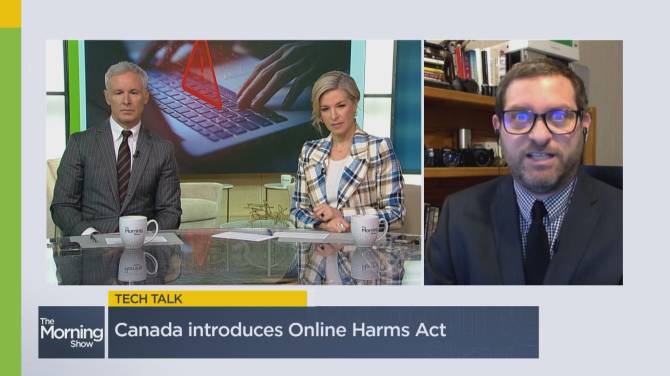Less than 50% of Canadians think that the government’s plan to regulate social media sites will make platforms safer, according to a new survey.
Polling company Leger recently asked Canadians about the Liberal government’s proposed Online Harms Act, which includes various measures meant to improve the safety of social media platforms, especially for children.
Half of the people surveyed expressed concern about the government’s ability to protect free speech, and most of them agreed with the controversial proposal to introduce harsher sentences for hate speech crimes.
Justice Minister Arif Virani introduced the proposed legislation, which would establish a new digital safety commission to oversee social media companies and appoint an ombudsperson to handle complaints from Canadians. The law would also require companies to create safety plans to reduce exposure to harmful content.
The bill focuses on seven types of online content it identifies as harmful, ranging from terrorist material to content that encourages a minor to commit self-harm.
According to the legislation, platforms must remove sexual content, such as intimate images shared without consent and child sex abuse images, within 24 hours of being flagged.
The regulator would have the authority to impose fines worth millions of dollars on platforms that do not comply with the rules.
Leger conducted a survey of 1,527 Canadians about the proposed measures from March 8 to 10. Online surveys cannot be assigned a margin of error because they are not considered truly random samples.
Nearly 70% of respondents said they support the government’s overall plan to regulate online content, while 25% said they disagreed with the move.
However, only 41% of respondents believe that the legislation will actually make online platforms safer, including making it easier to remove sexual abuse images. Another 32% do not think that will be the outcome.
When asked whether they trust the federal government to regulate online content in a way that protects individual free speech, only a small minority — 10% — said they “completely trust” the government.
Another 33% said they “somewhat trust the government,” while 27% said they “do not trust at all” and 23% said they “barely trust” the government to protect free speech.
Around 20% of those surveyed said they most trust the federal Conservatives to regulate material, with 17% of respondents choosing Prime Minister Justin Trudeau’s Liberals and only 13% choosing the federal New Democrats.
Conservative Leader Pierre Poilievre has been a strong critic of the government’s plan to regulate the online space, including previous laws aimed at regulating streaming platforms and forcing big tech companies to compensate news agencies.
When it comes to the online harms legislation, Poilievre has toned down his criticism significantly, saying he believes children should be protected from online dangers by police and the courts and not “pushed off to a new bureaucracy.”
Many critics of the law are mainly focusing on the suggestion to increase the punishment for hate propaganda crimes, raising the maximum sentence to five years in prison instead of the current two.
It also aims to let judges choose to give life sentences to people found guilty of promoting genocide — a step that the Canadian Civil Liberties Association said might silence free speech and not consider the principle of fairness in punishment.
Virani and Justice Department officials have supported that idea, saying it would only be used in the most serious situations and emphasizing that judges can decide the punishment.
Seventy-two percent of survey participants agree with the harsher penalties, while 15 percent disagree, and 13 percent are not sure.
Most of the respondents also back the government's plan to bring back a part of the Canadian Human Rights Act that would allow people or groups to report instances of online hate speech.
Critics have cautioned that reintroducing a version of the section removed during Stephen Harper's former Conservative government could result in many false claims and limit free speech.
Justice Department officials have tried to address these worries by stating that speech would have to depict a group as 'inherently violent' or 'unhuman' to be investigated by a human rights tribunal. The bill would empower the tribunal to demand the removal of the content or compensate a victim with up to $50,000 in damages.






